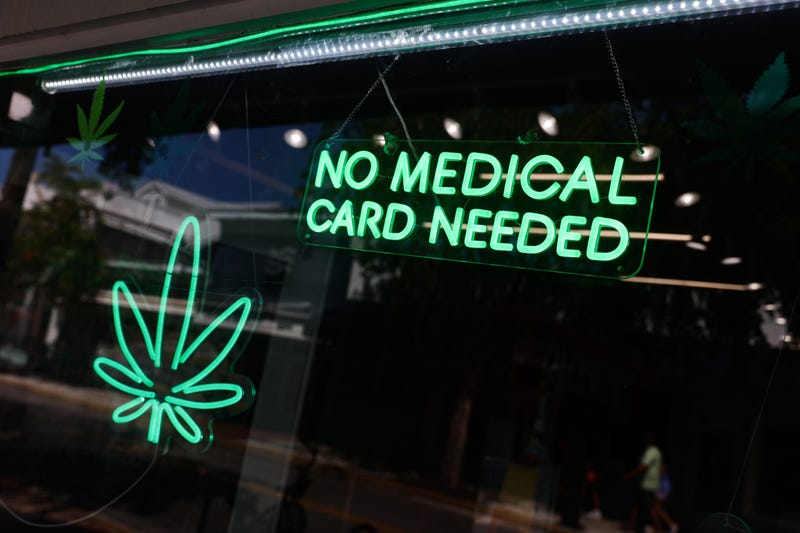
PHILADELPHIA (KYW Newsradio) — The Pennsylvania Legislature has wrestled with legalizing and taxing adult-use recreational marijuana for several years. Many advocates see a bipartisan bill by a Philadelphia Democrat and an Erie County Republican as the likely solution.
The state House passed an adult-use marijuana bill earlier this year, but it fell flat in the Senate. Erie County Republican Dan Laughlin questioned why that bill ignored existing medical marijuana infrastructure, instead opting for state-run dispensaries.
“We would start out roughly $250 million to $300 million in the hole before we ever take a dollar in sales,” he said. “That just does not seem like the right path to go on when the private market is ready, willing and able.”
Laughlin noted that many Pennsylvanians are already buying marijuana, whether it’s across state lines or from stores with questionable purity, labeling and dosage.
“Look at all the vape shops and smoke shops and gas stations that are virtually selling unregulated cannabis products right now,” he said. “They are proliferating across the state — no age limits.”
🎧 RELATED
Laughlin has teamed up with Philadelphia Democrat Sharif Street on a bill that Street said checks boxes for both parties. And with all neighboring states except West Virginia offering adult-use, it keeps that money in Pennsylvania.
“Moving forward with recreational adult-use cannabis in Pennsylvania is a way to bring more revenue in, drive the economy, and pay for mass transit and our other budget priorities,” said Street.
He added that the bill would address an obvious step toward solving current budget woes.
“We are all deeply engaged in the fact that there really is a need for us to fund mass transit. There’s a need to fund infrastructure, and there is a need to do this in a way that does not overly burden Pennsylvania taxpayers with additional taxes,” Street said.
The bill is currently in the Senate Law and Justice Committee, which Laughlin chairs.
Opponents of the legalization generally center on marijuana still being illegal on the federal level, as well as concerns about DUIs and the lack of accurate roadside tests.
